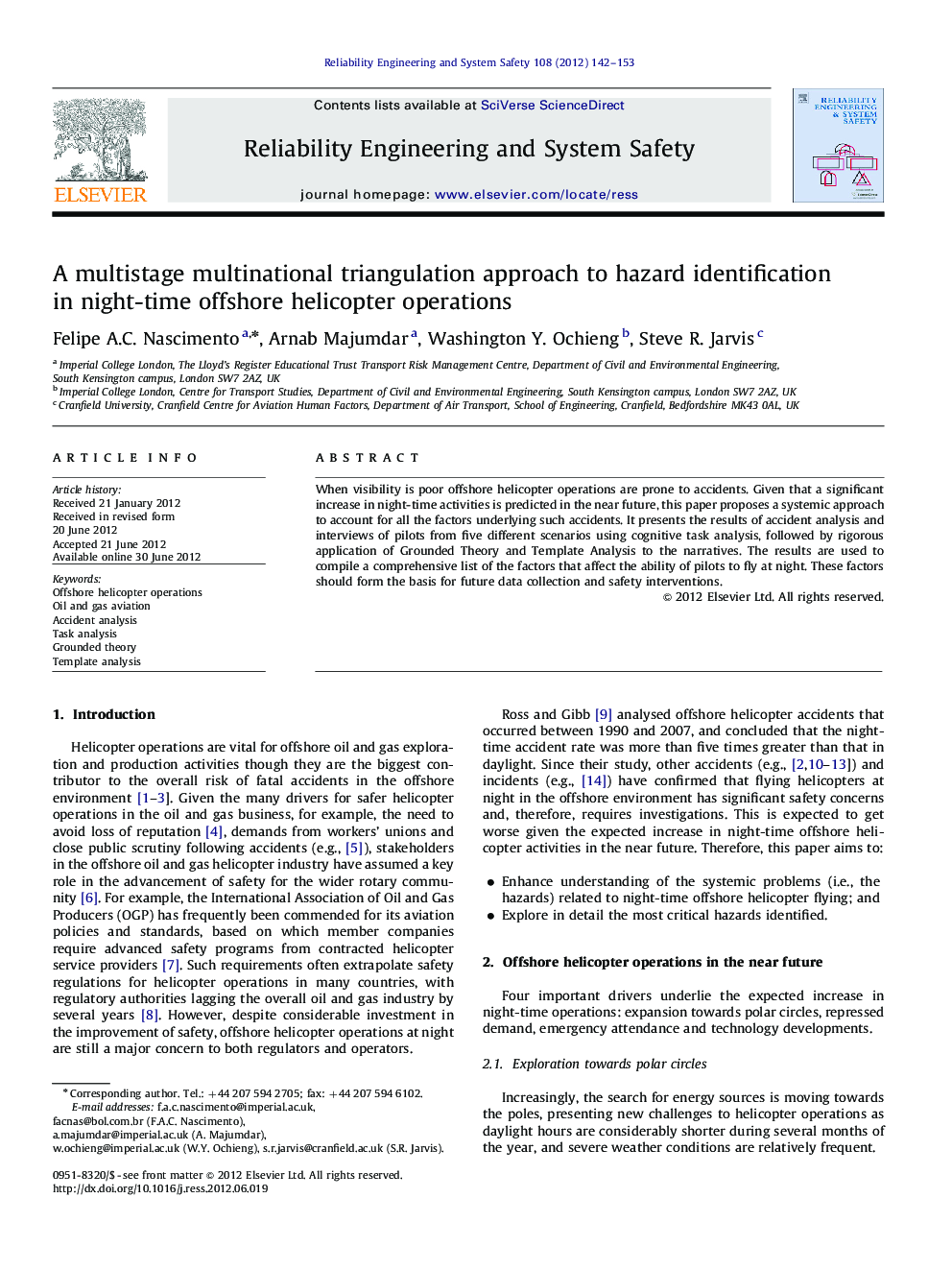| Article ID | Journal | Published Year | Pages | File Type |
|---|---|---|---|---|
| 805726 | Reliability Engineering & System Safety | 2012 | 12 Pages |
When visibility is poor offshore helicopter operations are prone to accidents. Given that a significant increase in night-time activities is predicted in the near future, this paper proposes a systemic approach to account for all the factors underlying such accidents. It presents the results of accident analysis and interviews of pilots from five different scenarios using cognitive task analysis, followed by rigorous application of Grounded Theory and Template Analysis to the narratives. The results are used to compile a comprehensive list of the factors that affect the ability of pilots to fly at night. These factors should form the basis for future data collection and safety interventions.
► Night-time offshore helicopter operations face a very high fatal accident rate. ► Accidents continue happening despite many safety interventions implemented. ► Accident reports alone are insufficient for systemic hazard identification. ► We interviewed pilots from five key scenarios using rigorous research methods. ► We identified many systemic flaws still unaddressed by ongoing initiatives.
